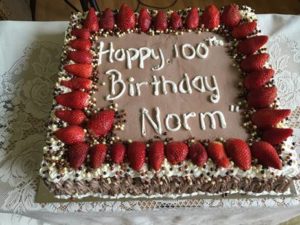[vc_row][vc_column][vc_column_text]With the motto “Bringing happiness to every day”, the team at Pittsworth are focused on ensuring each and every resident, and their family, has a comfortable transition to residential care and that their new home is just that, a home.
Headed by Director of Care, Janet Newlands, who has a personal motto of “treating staff well and with dignity and respect so that transfers to residents”.
The focus for all staff across the organisation is to help our residents with ‘Living Life’. Within that organisation philosophy sit three care programs underlying all decisions made for residents activities, meals, social activities and even construction and design of the building and gardens.
- Montessori
- Comfort Care Program
- Music and Memory
[/vc_column_text][/vc_column][/vc_row][vc_row][vc_column width=”1/2″][vc_column_text]Montessori
Many of us are familiar with the term Montessori as it applies to education but only a few of us in Australia are familiar with the application of Montessori methods for Dementia.
As an innovative method of working with older adults living with cognitive and or physical impairments, Montessori has the potential to change the lives of people in residential care. Montessori for Dementia is based on the educational philosophies of famed childhood educator Dr. Maria Montessori. Her philosophy and principles were discovered to be effectively adapted to dementia care.
Research has provided clear evidence of decreases in responsive behaviours and increased levels of engagement and participation in activities when Montessori approaches are implemented.
Montessori for Dementia provides the framework for realising the vision of independence, high self-esteem and a promising future for people living with dementia.
Montessori for Dementia is a model of care, a new way to deliver care which requires us to change allow thought we knew about dementia and providing care for people living with dementia. Montessori foe dementia focuses on supporting bothe the person and the environment which is adapted to support memory loss and independence. we are unable to change the terrible effects of dementia but by embracing Montessori principles and implementing environmental captions (including meaningful activities, roles and environmental cueing) we can circumvent the dementia. the result is that people living with dementia are able to make meaningful contributions to their community, engage in meaningful activities in addition to having the opportunity to maintain, and even restore function. the approach is flexible, innovation and grounded in research.
[/vc_column_text][/vc_column][vc_column width=”1/2″][vc_column_text]Comfort Care Program
Comfort Care is a 7-days a week Sensory based program
Activities of daily living are offered with a loving approach and are some of the meaningful activities that make up the substance of the Comfort Care Program
Who benefits from a Comfort Care Program ?
Residents with Advanced Dementia or other life limiting conditions
Plus at least one of the following:
- Inability to actively participate in activity programs
- Difficulty communicating
- Need for assistance with most personal care
- Inability to mobilise
- Receiving behaviour modifying medications
Why a Comfort Care Program?
To enhance the lives of residents, and provide them with a sense of comfort, calmness and serenity, regardless of physical or cognitive status. give holistic approach to ensure that care recipients, are pain free and individually nurtured through loving touch and meaningful activities.[/vc_column_text][/vc_column][/vc_row][vc_row][vc_column width=”1/2″][vc_column_text]Music and Memory
The power of personalised playlists.
In hundreds of care facilities throughout the U.S and Canada, Music & Memory is helping thousands of individuals living with chronic cognitive and physical impairments to reconnect with family, friends and caregivers.
Now this remarkable program is available in Beauaraba Living, Accredited by the Arts Health Institute.
This is a program of developing personalised playlists of music on iPod shuffles for people with dementia specifically but more generally for people who are in pain, feeling depressed or isolated.
“The program really helps create connections with people. It is a powerful way for family and friends to share music together, to remember stories and experiences” Maggie Haertsch – CEO, Arts Health Institute.
So simple, yet effective.
- Participants are happier and more social.
- Relationships among staff, participants and family deepen.
- Everyone benefits from a calmer, more supportive social environment.
- Staff regain valuable time previously lost to behaviour management issues.
- There is growing evidence that personalised music program gives professional one more tool in their effort to reduce reliance on anti-psychotic medications.
[/vc_column_text][/vc_column][vc_column width=”1/2″][vc_column_text]

[/vc_column_text][/vc_column][/vc_row]